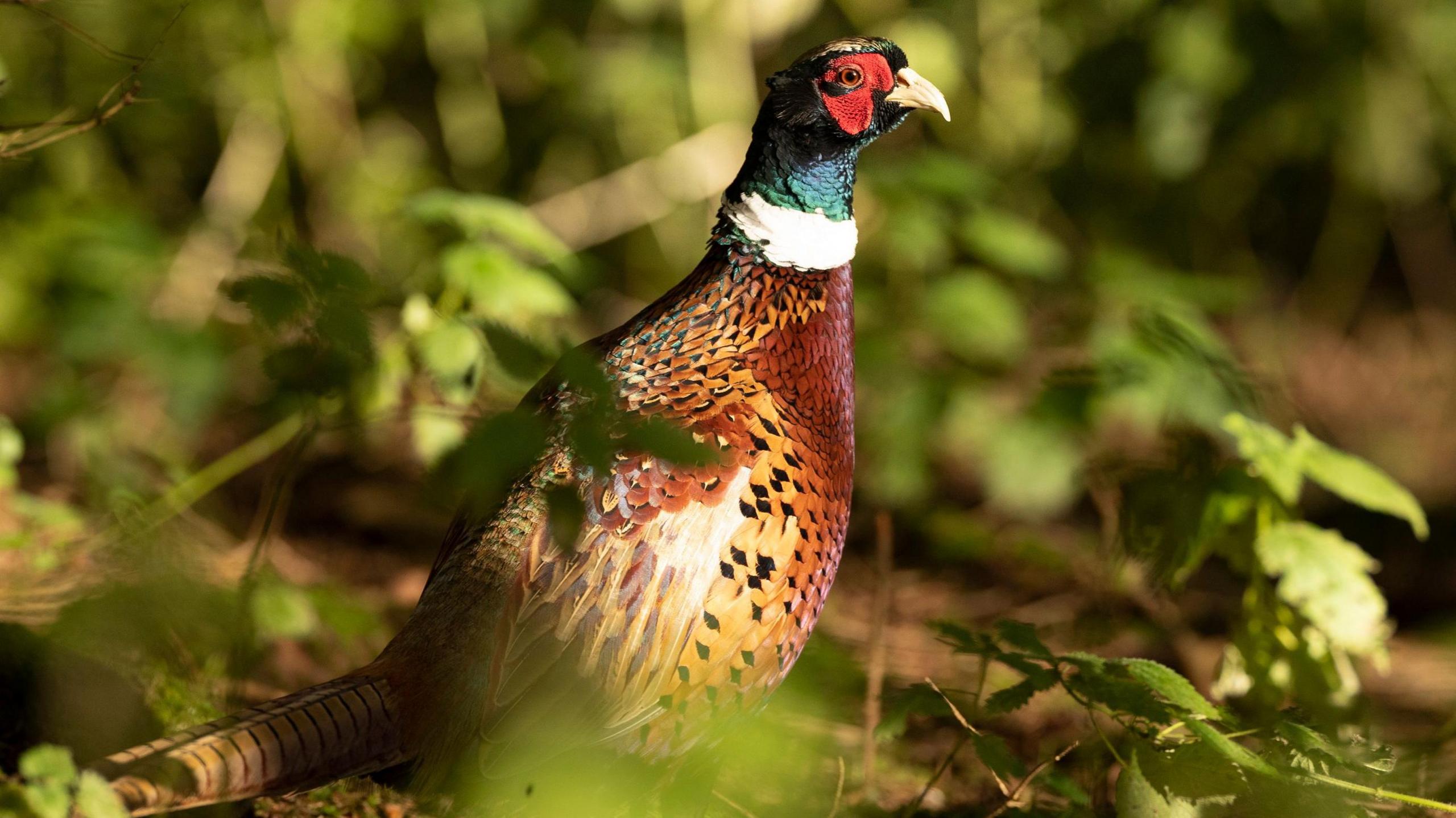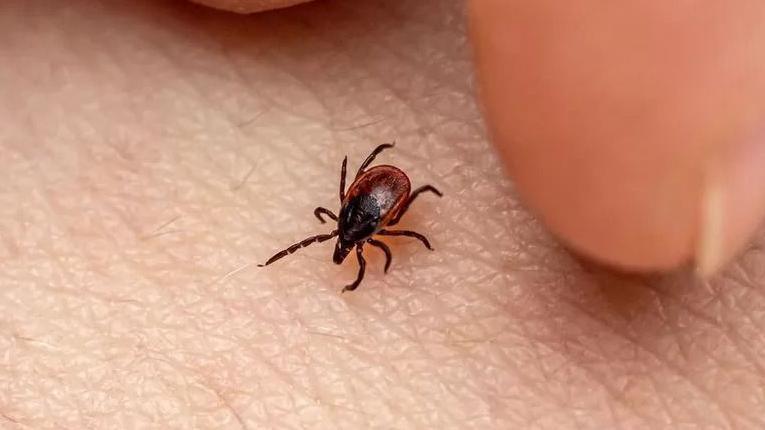Study finds pheasant link to Lyme disease germ

Researchers found bacteria that can cause Lyme disease is more prevalent in areas where there are pheasants
- Published
Ticks are more likely to carry the bacteria that can cause Lyme disease in areas where pheasants are released, new research has shown.
Researchers studied ticks in 25 woodland areas in south-west England where pheasants were released and 25 nearby control sites where no pheasants were released.
They found the bacteria that can cause the infectious Lyme disease, Borrelia spp., was almost 2.5 times more common in ticks in the pheasant-release areas.
The research was carried out by the Centre for Ecology and Conservation on the University of Exeter's Penryn campus in Cornwall and the UK Health Security Agency (UKHSA).
'Increased risk'
Emile Michels, from the centre, said pheasants were known to have a relatively high likelihood of contracting and retransmitting the bacteria.
He said: "More research is needed, but our findings suggest there may be an increased risk of potential exposure to Borrelia-infected ticks for people – such as gamekeepers – who work in woodlands where pheasants are released in numbers."
Researchers tested ticks and found that, overall, the proportion containing Borrelia was 7.8% in pheasant-release woodlands and 3.2% where pheasants were not released.
Dr Jolyon Medlock, head of the medical entomology and zoonoses ecology team at UKHSA, said: "While we have observed an increase in the bacteria that can cause Lyme disease in ticks, we do not have data on the resulting impact on human health, including evidence of Lyme infection."
He said they would continue to research what drives the transmission of the bacteria.
Follow BBC Cornwall on X, external, Facebook, external and Instagram, external. Send your story ideas to spotlight@bbc.co.uk, external.
Related topics
- Published14 June 2023

- Published14 June 2024
